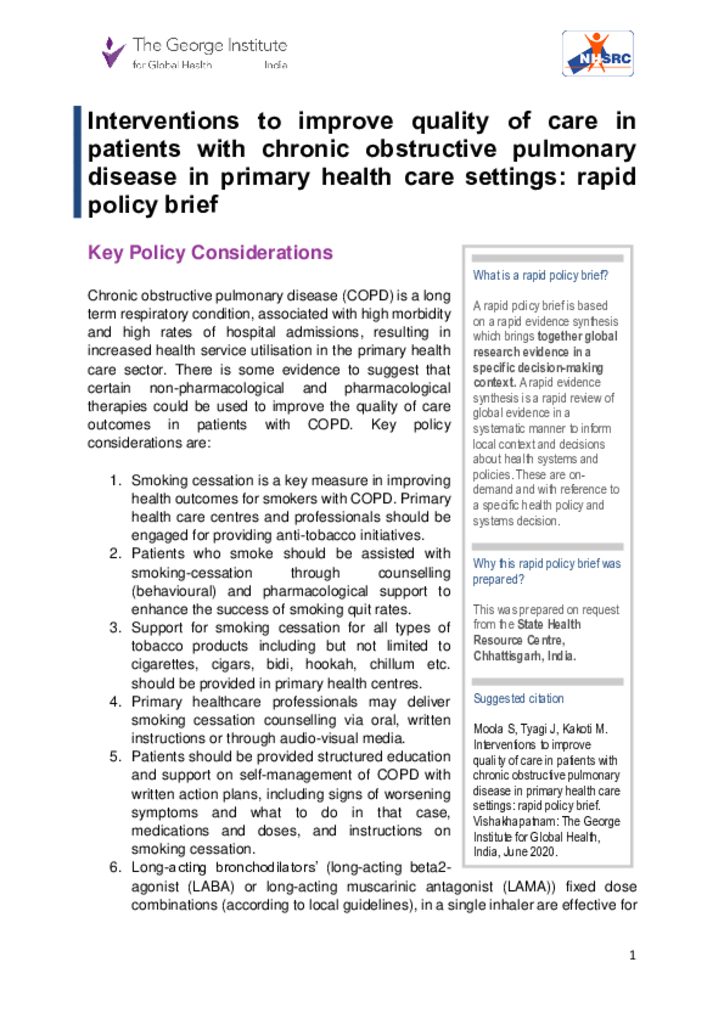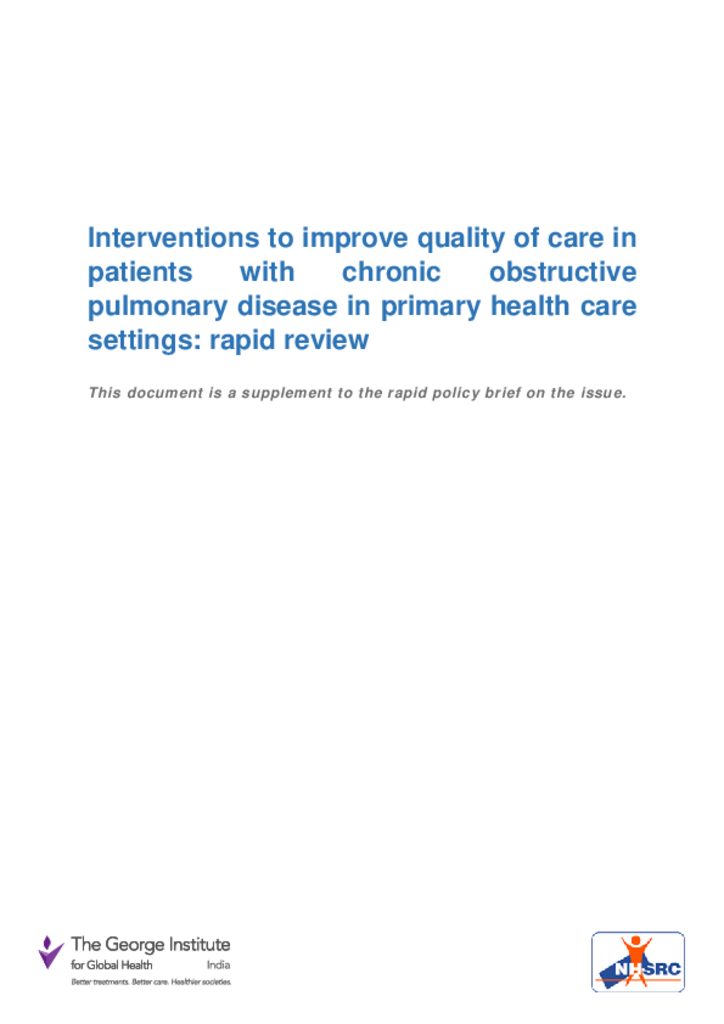
Interventions to improve quality of care in patients with chronic obstructive pulmonary disease in primary healthcare settings: rapid policy brief
Chronic obstructive pulmonary disease (COPD) is a progressive lung disease witnessing an increase in its burden worldwide, particularly in low-and-middle-income countries (LMICs). The State Health Resource Centre (SHRC), Chhattisgarh identified a high burden of COPD in the State. The decision makers perceived a lack of evidence-informed interventions to improve quality of care (QoC) among COPD patients at the primary healthcare (PHC) level. The Centre requested our RES team to review the existing evidence on such interventions.
The rapid review we conducted offers an overview of evidence on the interventions to improve QoC for patients with COPD in PHC settings. This would enable decision makers to better manage COPD and improve quality of care among the patients in Chhattisgarh.
Key policy considerations:
- Smoking cessation is a key measure in improving health outcomes for smokers with COPD. Primary health care centres and professionals should be engaged for providing anti-tobacco initiatives.
- Patients who smoke should be assisted with smoking-cessation through counselling (behavioural) and pharmacological support to enhance the success of smoking quit rates.
- Support for smoking cessation for all types of tobacco products including but not limited to cigarettes, cigars, bidi, hookah, chillum etc. should be provided in primary health centres.
- Primary healthcare professionals may deliver smoking cessation counselling via oral, written instructions or through audio-visual media.
- Patients should be provided structured education and support on self-management of COPD with written action plans, including signs of worsening symptoms and what to do in that case, medications and doses, and instructions on smoking cessation.
- Long-acting bronchodilators’ (long-acting beta2-agonist (LABA) or long-acting muscarinic antagonist (LAMA)) fixed dose combinations (according to local guidelines), in a single inhaler are effective for patients with persisting symptoms and/or exacerbations, as a follow-up treatment to bronchodilator monotherapy.
- Future studies including cost analyses are required for definitive conclusions on the health care costs of various strategies in primary health care settings.
- Trials with a larger sample size, longer follow ups, and tailored interventions should be conducted to address the knowledge gaps relevant to primary health care settings.
The full policy brief and technical supplement document are available below:
Download policy brief (PDF 240 KB)
Download supplement document (PDF 935 KB)




